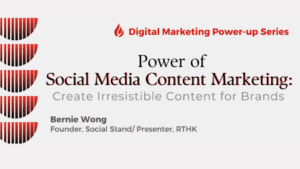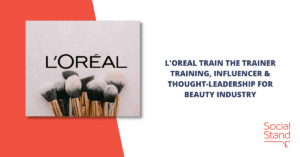The whole city has been following the Tokyo Olympics closely. The outstanding performance of Hong Kong athletes has won the hearts of all Hong Kong people. It is not only the athletes who are giving their all as they compete. The editors of social media brand pages are also working very hard at this time. To take advantage of the Olympic fever in garnering “Likes” from netizens, what kind of social media content should be published?
Producing Content in Advance
Some brands followed traditional media, that is, to produce content beforehand. For example, traditional media will put together content about the lives of celebrities and launch these stories when there is breaking news about these well-known figures. So, some of the online content and images that you see, as our athletes won gold, silver, bronze, or missed out on medals, were produced ahead of time. Some brands similarly do the same. As they await the results of the events, they will then publish materials that have been prepared in advance. They will just adjust it depending on the athlete’s actual performance.
Avoid Posting When There is a Deluge of Information
There are several levels to capitalizing on current events. The most basic level would be: to congratulate the champions, launch giveaways, or offer special discounts and promotions. These are means of leveraging the ongoing buzz. They are the online version of what a salesperson on the streets might say: “Seeing that everyone knows one another, I will offer you a discount today!” Would this elicit a negative response? Probably not, since customers will buy if they like your product anyway. Yet, such publicity would not have any real positive impact on your brand. My suggestion is that it would be better not to insist on pushing out such publicity during this time because of the competing content and ongoing discounts.
Unprofessional Offers of Sponsorship Are Not Desirable
A lot of content mentions the Tokyo Olympics and the Hong Kong team. It is fine if it complies with legal requirements. But brands that are not officially recognized should not use such wording. Still worse, some brands illegally use images that don’t belong to them. They do not realize that these images may be copyrighted by the international media. The right to use such images for commercial purposes and publicity should be purchased. Brands cannot get away with simply citing the sources of these images.
Some brands may have even more wishful thinking about sponsoring athletes who have won medals. This is not an advisable approach. If this involved a celebrity, brands should not be so presumptuous because they would certainly get into trouble with the celebrity’s managing agent or company. Although most athletes do not have a managing agent, they may have existing collaborations and official sponsorships with brands. Without the athlete’s consent, it is not right to publish the athlete’s photos alongside promotional content of products. If it involves a celebrity figure, the brand would probably receive a lawyer’s letter from his or her office.
It is not easy to pull off such a stunt. One of the best we’ve seen is from Durex. The brand has published a post that doesn’t appear to be hard selling and technically avoids all kinds of minefields. These days many self-proclaimed experts believe that “If we don’t capitalize on this situation, we would be letting our clients down,” or “I’ve already prepared everything but my client only wants to focus on his products.” Is doing so really the best way? Unless it is related to your brand value or products, it is witty and isn’t far-fetched. But it would be inadvisable and unprofessional to do so if it is meant for personal satisfaction or if it means your brand value takes a back seat.
Original Article: https://www.mpfinance.com/fin/dailyb2.php?col=1592303366123&node=1627873910577&issue=20210802








